Fukuoka based architect and designer Koichi Futatsumata leads Case-Real and Koichi Futasumata Studio, specialising in architecture, furniture and product design. It was the unconventional and innovative design of the Moulton bike and its mechanics that first ignited his love of bicycles. And with the design obsession came the freedom two wheels brings to explore the mountains, islands and coastal areas of Kyushu.
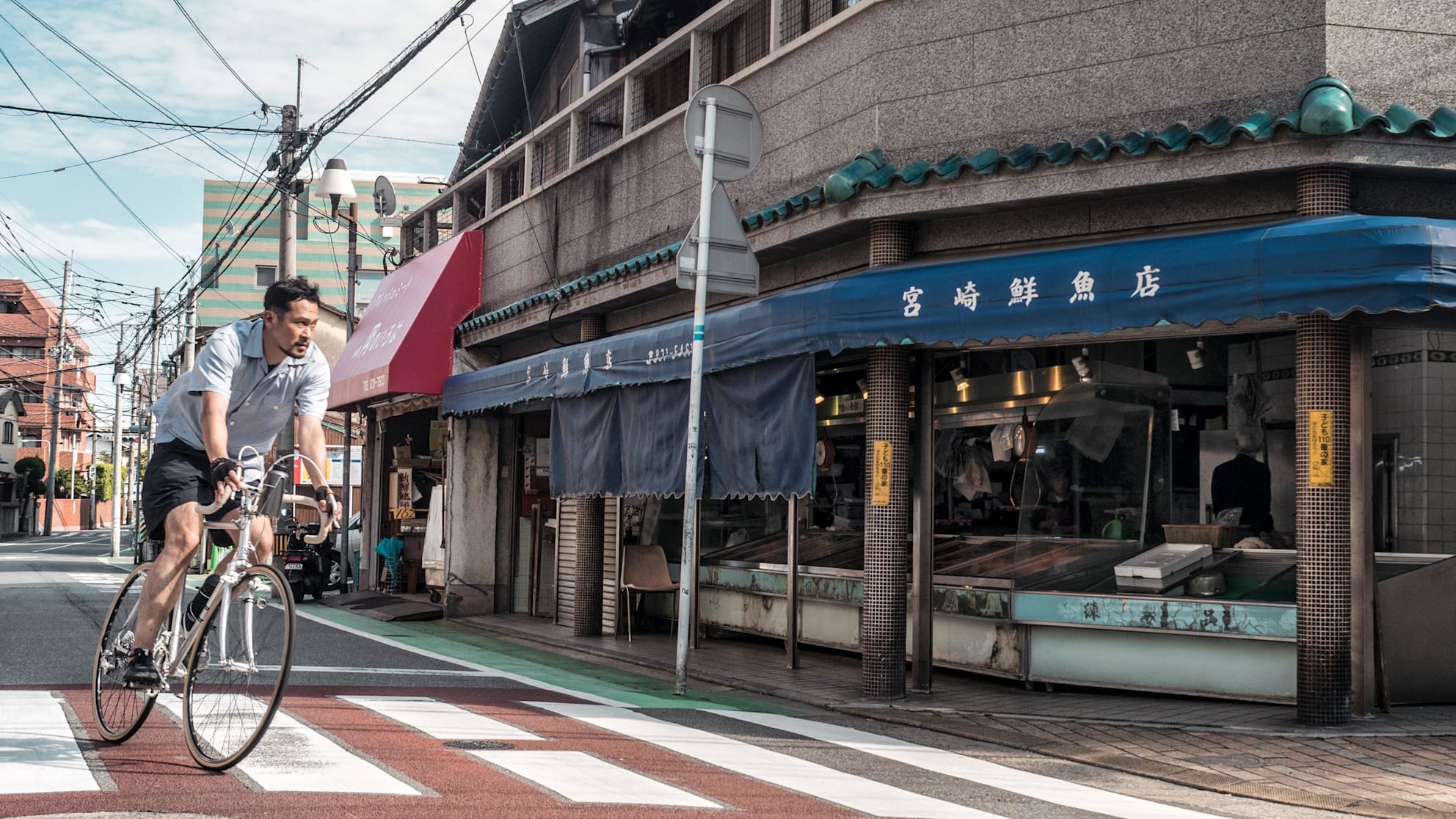
Koichi Futasumata
Architect and Product Designer
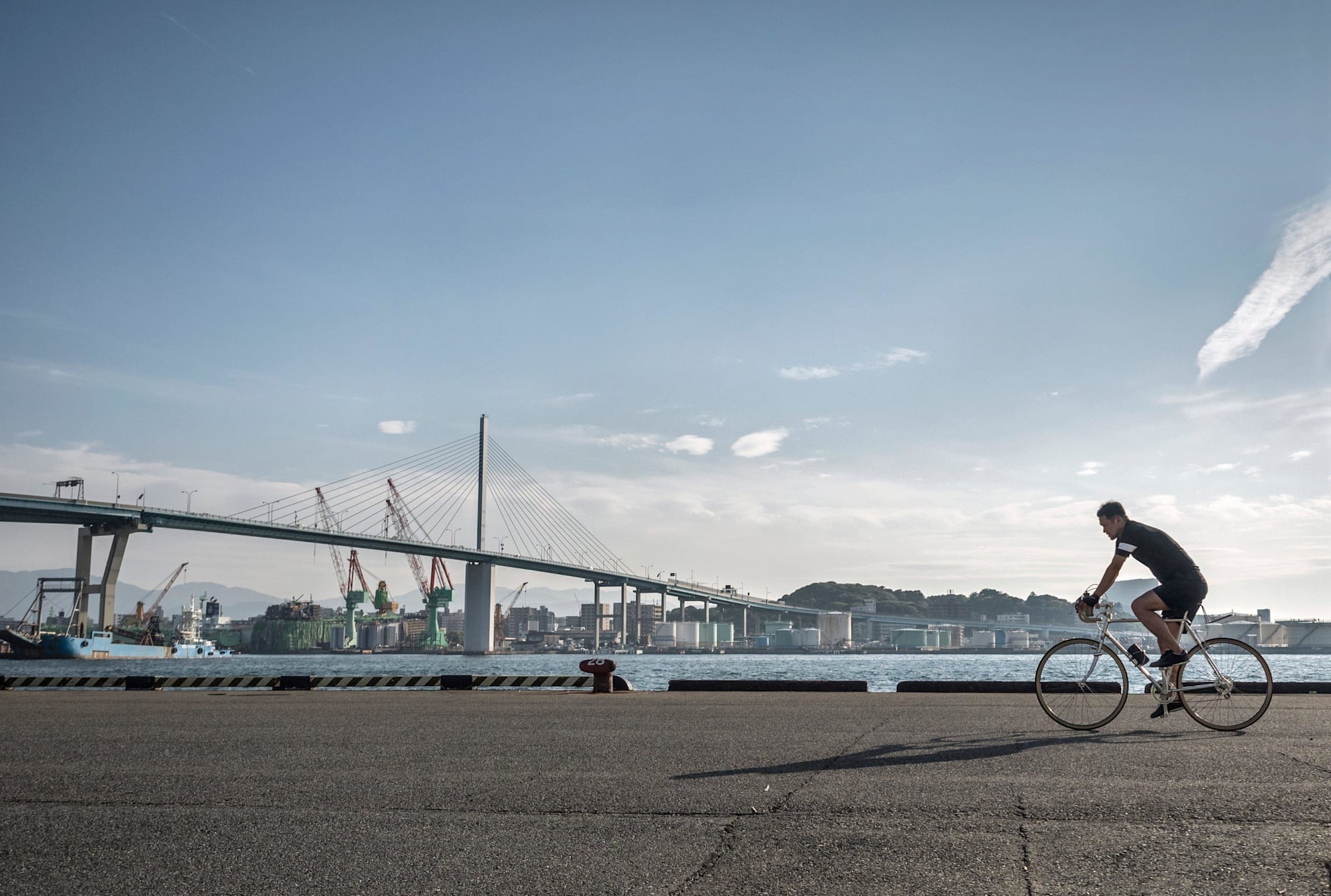
What makes Fukuoka so special as a city?
People often talk about the geography. The city is tightly packed within a beach plain – you can find almost everything here, and if you ride for half an hour there are mountains, the ocean and beyond that a small island. There are so many nice areas around here which are very unique to this place. I feel that the rhythm and speed of this city and people are just right. Their honesty can often be harsh, but it's a nice blend that's both laid back and human. It feels like the perfect balance.

Your work covers many areas, how would you describe what you do?
I'm a designer. I don't really differentiate between architectural, interior, and product design. Of course during the process there are differences in how the work relates socially, but for me, because all of these areas are within my definition of creating and because I've always wanted to do everything perfectly as a whole, I try not to specify my field.

“When you're on a bicycle, you're free to do as you wish, it gives you a true sense of freedom.”
– Koichi Futasumata
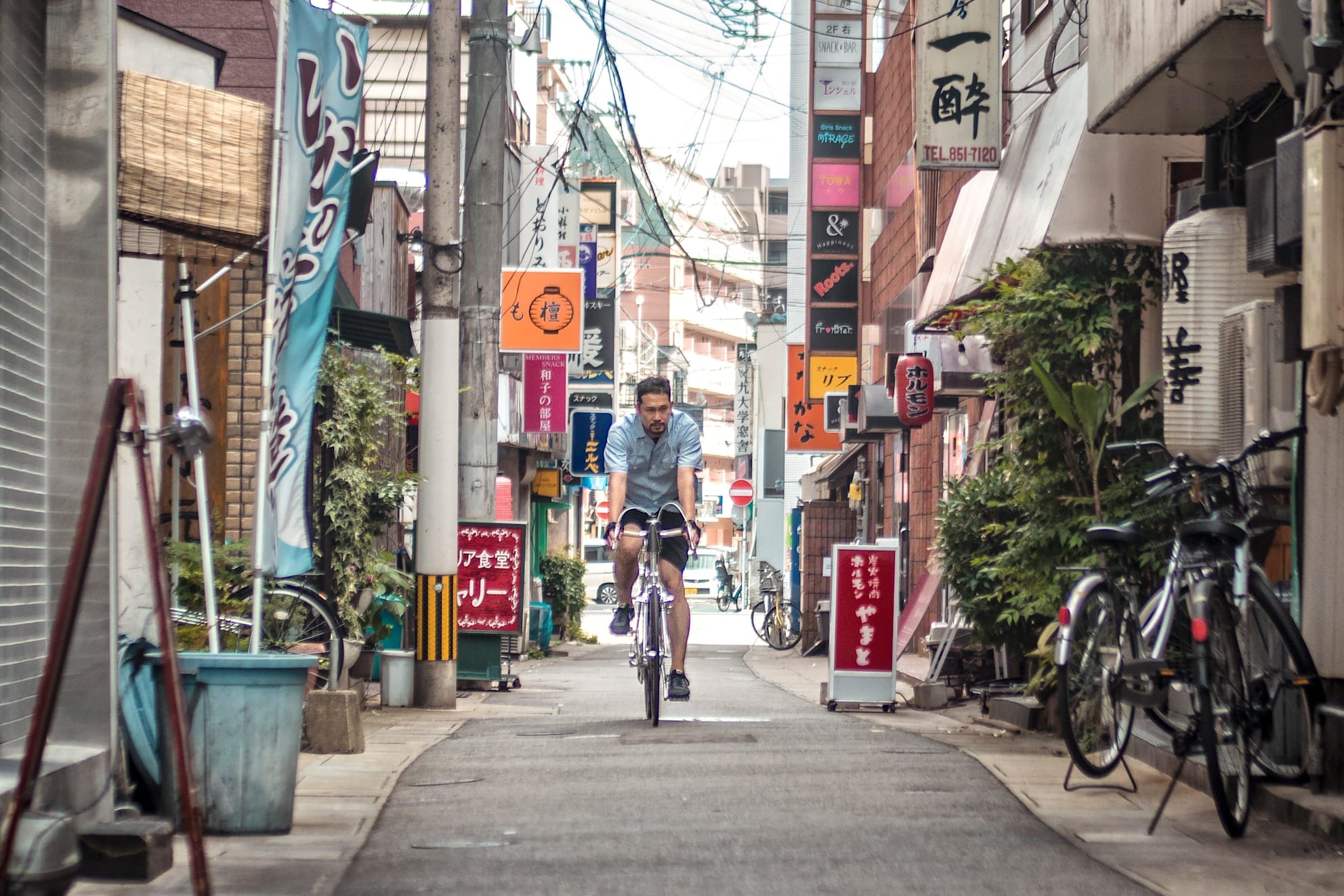
How did you get your start in cycling?
Because I’ve been a product designer since my early 20s, I’ve always loved mechanics and anything related to machines. The first time I saw a Moulton I was taken aback by its fabulous design and had to buy one. That was the very beginning… but because I didn't have enough money to buy something so expensive at the time, it was a Japanese Bridgestone Moulton. As I began to ride it brought back many memories and my love grew. I started going to this old-established bike shop in Fukuoka, which is when my relationship with bicycles really started. From that point I began to build bicycles for myself, doing all sorts of things. Over the last ten years I've brought friends on rides, sometimes taking our bikes by car to explore some of the more distant areas. We went to the Yabakei mountains in Oita prefecture and even Iki island by boat which were memorable times.
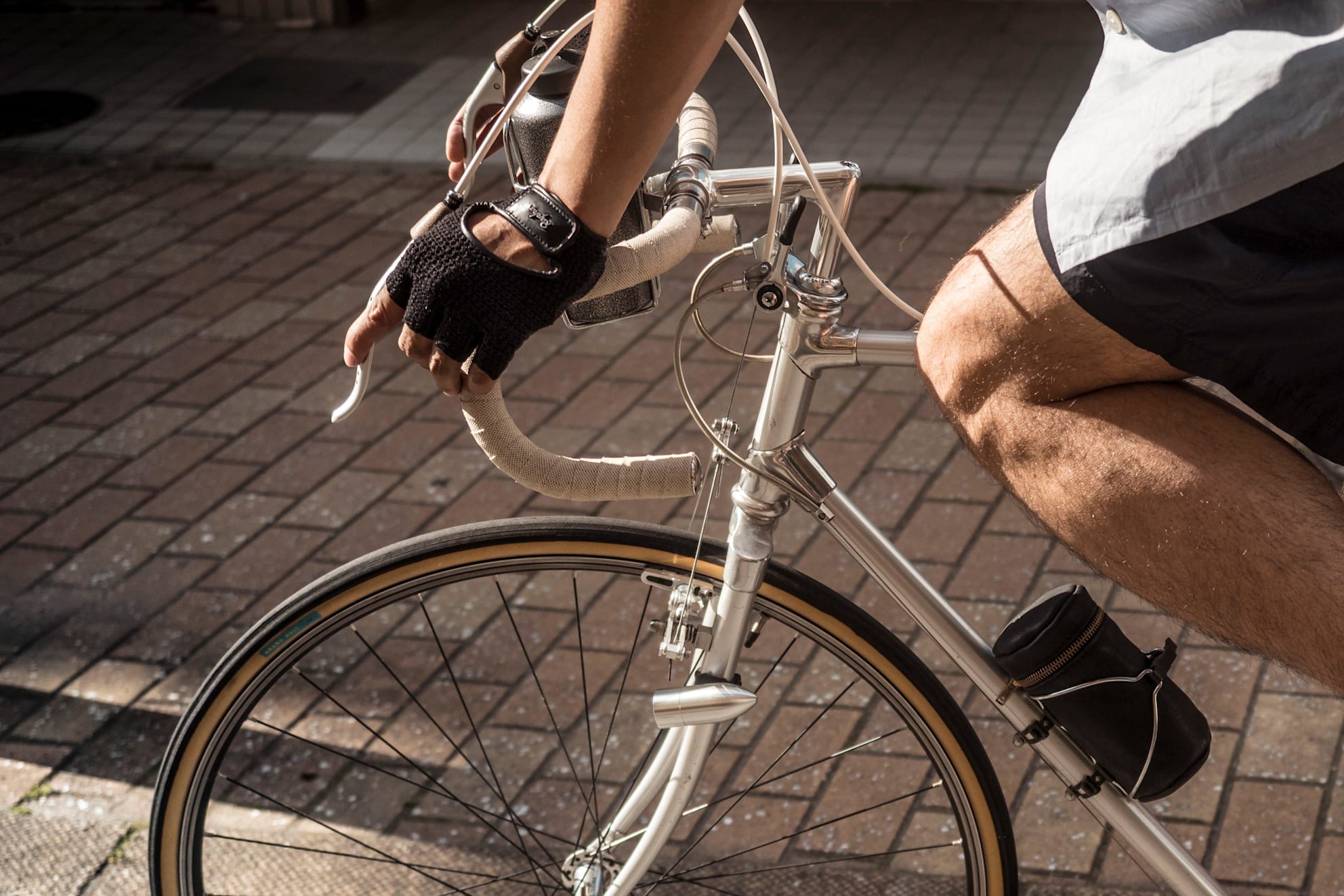
Is there a benefit to your work from cycling or is it more about switching off?
When I'm riding I definitely feel more free. I don't really think about work though. With the small group I ride with, if I talk about a project that I'm working on, I do get feedback sometimes that could lead to better ideas. But I think that more often when I’m riding, I become more open and absorbed with what I'm doing at that particular moment in time. I'm really just enjoying the air, the landscape and the breeze – truly relaxing. Most of the time when I ride it’s about taking time off and riding my bike. I think because I work in such an intense manner, it feels that when I'm doing physical activity I use a different part of my brain, just enjoying the connection with my body, and not thinking so much with my head.
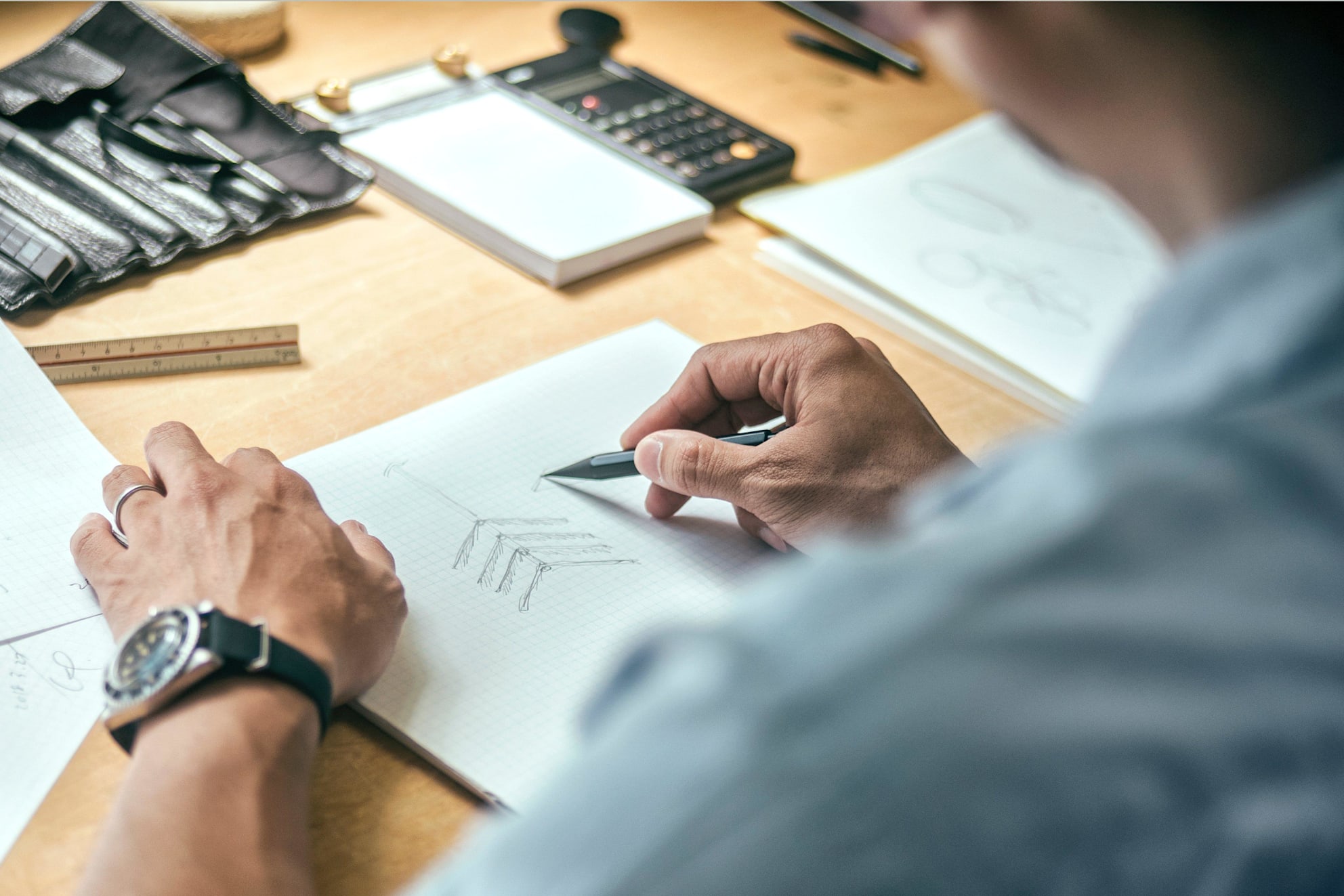
"I feel that the rhythm and speed of this city and people are just right. Their honesty can often be harsh, but it's a nice blend that's both laid back and human. It feels like the perfect balance"
– Koichi Futasumata
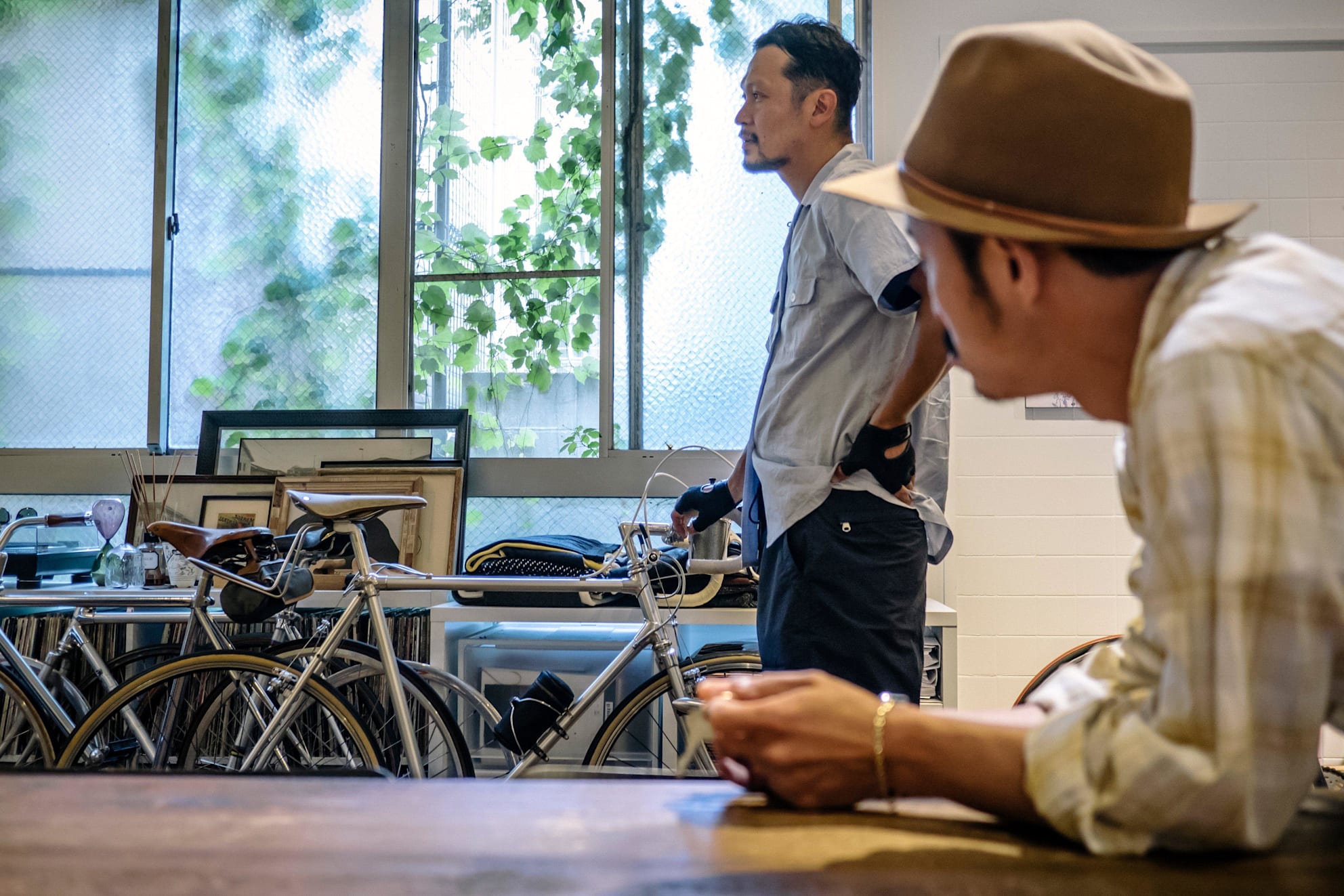
The importance of form and function in architecture and industrial design is paramount, do you think your profession influences your view of cycling?
I get really caught up in the beauty of the mechanics and how much thought was put into how things connect with each other. This doesn't just apply to bicycles, but especially since they have a bone structure and multiple functions; using a human analogy, the structure is like seeing muscles and blood vessels, everything is visible. I get really curious about how each of the parts work, how they are assembled and how similar it is to the human anatomy. After I began visiting the local bike shop I learned more about the history of cycling. The bicycle is tremendously efficient and there is so much beauty in having such little waste in it's structure. Because of my work I was really drawn in to it and I became really curious, researching about the manufacturers of the components, their country or origin and the historical background.
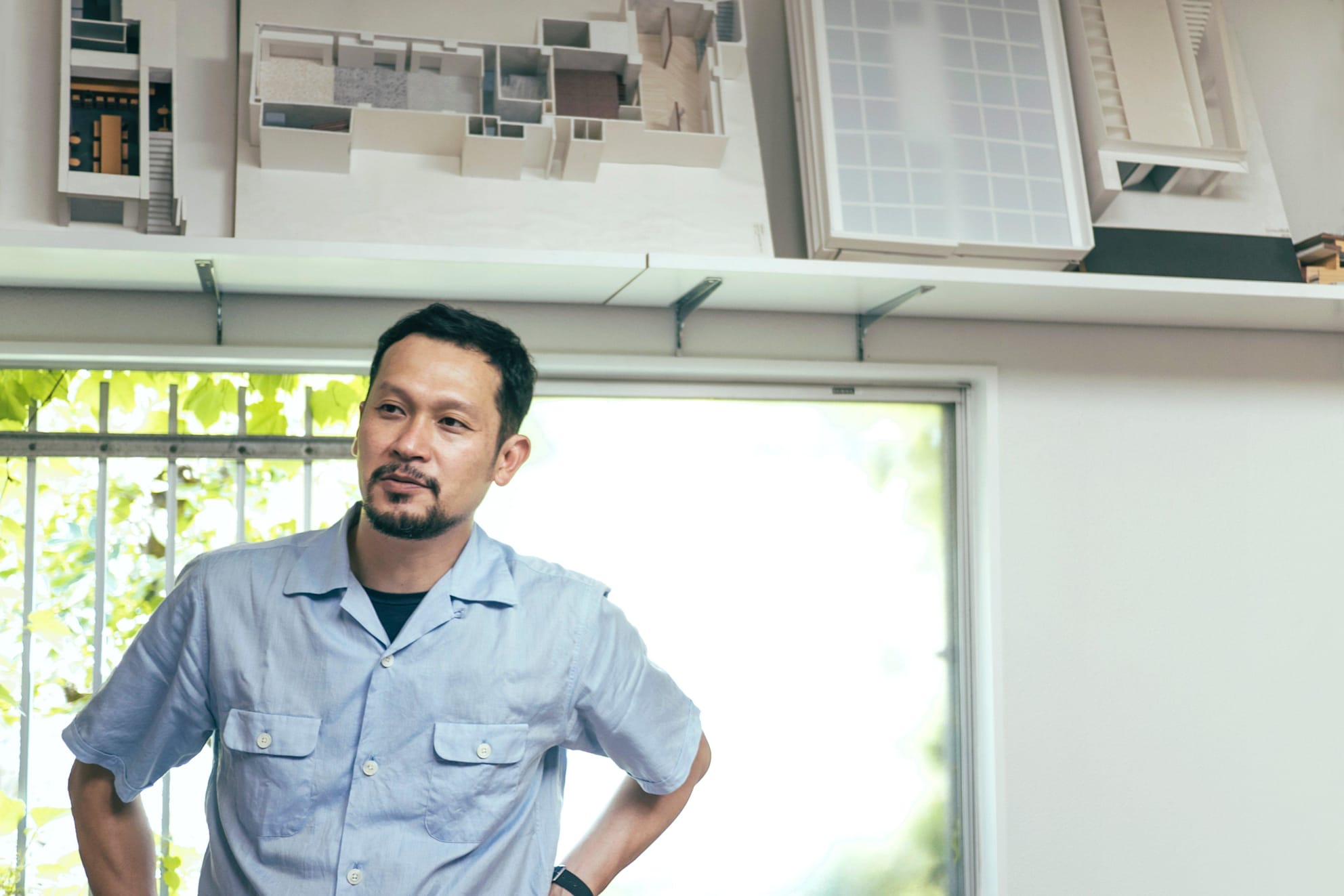
The bicycle is one of the most efficient creations of mankind, Steve Jobs talked about the computer being "the bicycle of the mind”.
That's why I think it's such an amazing design. To think that all of that speed comes from manpower alone is just astonishing. You can control everything with your willpower alone – take speed for example, the landscape changes and you're enjoying it, so you slow down, or stop. Unlike driving a car where there are all kinds of traffic restriction and regulations, so you can't always stop when you want to, but when you're on a bicycle, you're free to do as you wish, it gives you a true sense of freedom.